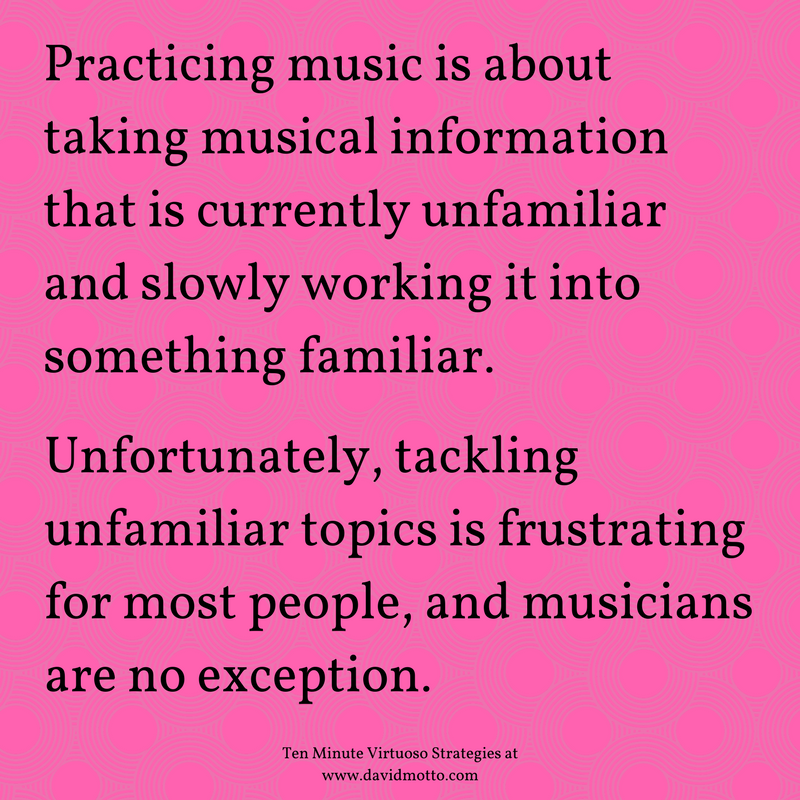David Motto’s Practice Tip of the Week
Practice TODAY
Reasons Musicians Don’t Practice Every Day
Today’s practice tip is a variation of last week’s “Practice Every Day.”
But, it’s a very important variation. Here’s why:
Even though musicians know they’ll benefit from daily practicing, very few people actually do it.
There are many reasons for this, including:
- People are busy with other things.
- It’s hard to get a practice session started.
- Many musicians focus on “practicing” instead of “playing” music, and “practicing” does not excite them.
Psychological Barriers to Practicing
There is also a subtle, psychological barrier that stops many people from practicing daily.
The thought of practicing every day for the rest of your life is a difficult concept to face. It’s just too much to think about. It’s like a long road fading into the distance–with no set destination!
This barrier has actually gotten worse in the last few years because of a couple changes in our society.
First, the popularization of the idea that it takes 10,000 hours to get really good at something has scared off a lot of people. Many musicians wonder if they can just be happy at the level they are today if it’s going to take so long to experience the type of improvement they’re dreaming of. The idea that it takes so long to master a musical instrument is even stopping some people from taking up a musical instrument in the first place.
Second, the rapid growth of new technologies that promise extremely rapid learning systems makes the years-long pursuit of mastering a musical instrument seem, at best, old-fashioned and, at worst, not really a worthwhile way to spend time.
The Philosophical Side of Practicing TODAY
The solution to erasing your thoughts of the endless road ahead is to focus on practicing today only! Don’t worry about tomorrow. Your one and only responsibility is to practice music TODAY.
That’s all your responsibility ever is. Why? Well, without getting too philosophical about it, Today is the only time we ever have. After all, Tomorrow doesn’t really exist–it’s just a concept in our minds.
This doesn’t mean we shouldn’t make long-term plans and goals. This doesn’t mean we shouldn’t dream of a better future. But, it absolutely means that to carry out those goals and plans so that our dreams come true, we have to do something TODAY.
You have control over Today. So, make the most of it!
The Practical Side of Practicing TODAY
From a purely practical point of view, look over your schedule for Today and decide the best way to fit in your music. Decide when you’ll practice and for how long.
Once you know when you’ll practice, set a practice goal – just for Today. Having this daily goal gives you the focus you need to make real progress. Your responsibility is to meet Today’s goal Today. Nothing else.
With your daily goal in place, you’ll get carried away by the music you’re working on. All thoughts of Tomorrow and the endless road ahead will disappear. Taking action has an immediate, positive effect on any worry musicians have about the future.
Try thinking about just one day at a time – Today. Leave me a comment and let me know how this strategy works for you.
To Your Musical Success!
– David Motto

